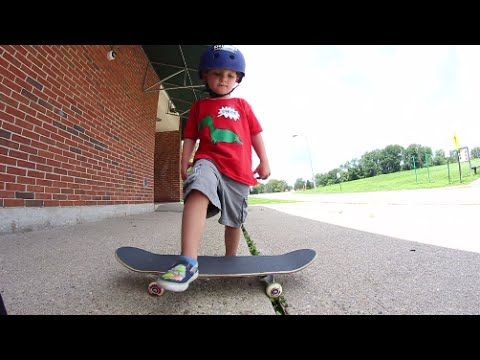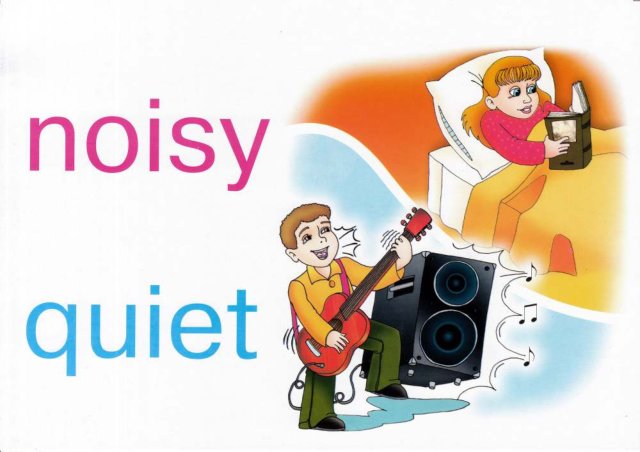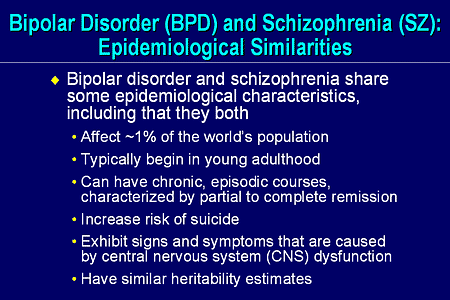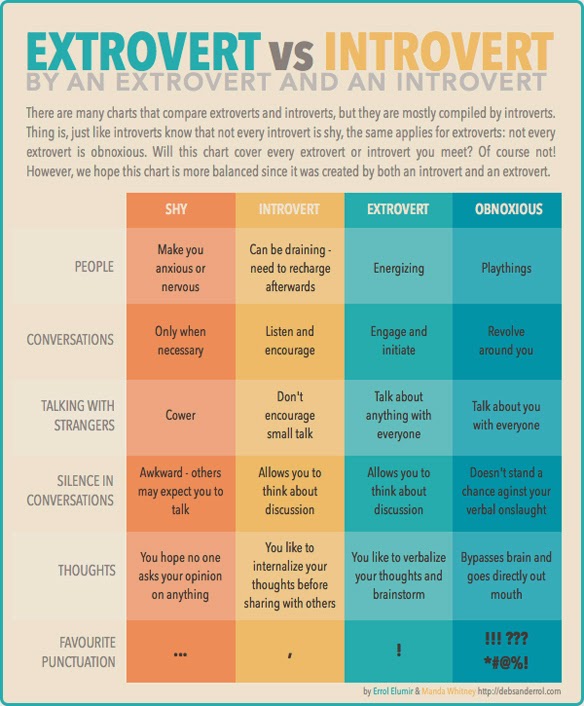How to recover from panic attacks
How to Overcome Panic Attacks in Recovery
Experiencing a sudden and unexpected panic attack can be frightening. In many ways, a panic attack mimics a heart attack. Those experiencing such events often fear they are having a heart attack, with many heading to the emergency room only to be told that they were experiencing severe anxiety.
In recovery, feelings of anxiety can sometimes be overwhelming. If you should suddenly experience a powerful wave of anxiety, it might be a panic attack. Continue reading to learn more about overcoming a panic attack.
What are panic attacks?Panic attacks typically come out of nowhere and strike with little warning. The symptoms can be so disturbing that the individual truly believes they are dying.
Symptoms tend to last from 5-20 minutes on average, and involve four or more of the following:
- Rapid heart rate
- Heart palpitations
- Trembling or shaking
- Headache
- Shortness of breath
- Chest pain
- Chills
- Sweating
- Dizziness
- Fear of losing control
- Nausea, diarrhea, vomiting
- Choking feeling
- Numbness or tingling
- Feeling detached from reality
- Intense dread, feeling threatened
- Fear of dying
Panic attacks are rare events that tend to emerge quickly and without warning, and then dissipate.
Panic disorder, on the other hand, is a mental health condition that affects 2.7% of adults each year.
This disorder induces repeated panic attacks for no discernable reason, causing the individual to change behaviors in order to avoid them. Many with panic disorder become isolated — afraid to leave their homes for fear of having another panic attack.
While the symptoms of a panic attack are not to be taken lightly (their similarity to a heart attack can make them especially tricky to diagnose for those who also suffer from heart ailments), some initial coping mechanisms are worth trying.
Coping with panic attacksIf you feel a panic attack coming on, you can immediately begin to manage its effects. The following techniques can help mitigate the impact of a panic attack:
- Focused breathing. Breathe in through the nose for five seconds; hold the breath for seven seconds; slowly exhale through the mouth to a count of five.
 Repeat this pattern 5-10 times.
Repeat this pattern 5-10 times. - Self-talk. Repeat an affirming statement, like a mantra. These might include “This will pass soon,” “I am fine,” “I won’t die from this,” or “Just ride this out.”
- Distract yourself with a soothing activity. Any activity that brings peace and calm can help quell the effects of a panic attack. Try a simple exercise such as counting every white car you see, lighting a scented candle or playing relaxing music — anything you wish.
- Relax your muscles. Sit down and clench a muscle group, holding it to a count of five, and then release. This can help distract you and relax your body.
- Practice mindfulness. This type of meditation focuses the practitioner on the present moment. During a panic attack, mindfulness allows you to fully accept feelings of fear while assuring yourself that it is a transient event and will soon be over.
- Rest quietly.
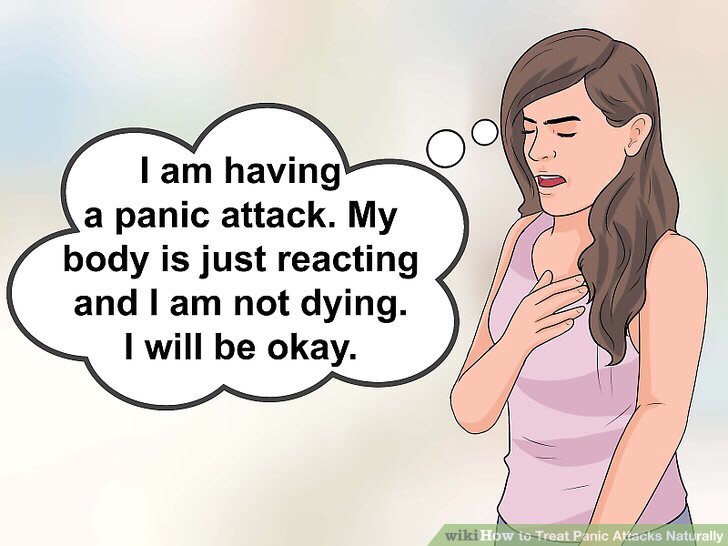 Because a panic attack can be upsetting, it is often best to find a quiet place to sit and wait it out. Once seated, close your eyes and practice deep breathing.
Because a panic attack can be upsetting, it is often best to find a quiet place to sit and wait it out. Once seated, close your eyes and practice deep breathing.
If symptoms fail to subside after 20 minutes or so, know that you can contact a medical professional for advice.
If you have already done so and found that you are prone to panic attacks, knowing that what you are feeling is a panic attack, and not a heart attack, is half the battle. If you are concerned about your health, see a doctor for a full physical exam. If there is no health issue or heart disease present and you experience a panic attack, just remind yourself that it will soon pass.
Ashley Addiction Treatment, formerly Father Martin’s Ashley, is a nationally recognized nonprofit leader in integrated, evidence-based treatment for substance use disorders. Our programs are accredited by The Joint Commission, and result in frequent publications of ongoing research into effective treatment methodologies. We offer holistic care that encompasses the mind, body and spirit through inpatient and outpatient treatment, provide drug detox, relapse prevention plans, family wellness programs and a variety of other services tailored to each patient’s unique needs. Our driving principle — “everything for recovery” — reinforces our mission to transform and save lives through the science of medicine, the art of therapy and the compassion of spirituality, and is complemented by our philosophy of healing with respect and dignity. For information about our comprehensive programs, please call 866-313-6307.
We offer holistic care that encompasses the mind, body and spirit through inpatient and outpatient treatment, provide drug detox, relapse prevention plans, family wellness programs and a variety of other services tailored to each patient’s unique needs. Our driving principle — “everything for recovery” — reinforces our mission to transform and save lives through the science of medicine, the art of therapy and the compassion of spirituality, and is complemented by our philosophy of healing with respect and dignity. For information about our comprehensive programs, please call 866-313-6307.
Filed Under: Sober Living
Panic Attack Hangover: After-Effects and Recovery Tips
Your heart is pounding. You can’t catch your breath.
You feel so afraid that you believe you might be dying. This is what it feels like to have a panic attack. Also referred to as anxiety attacks, panic attacks are sudden episodes of intense fear that trigger physical reactions, such as rapid breathing and heart rate.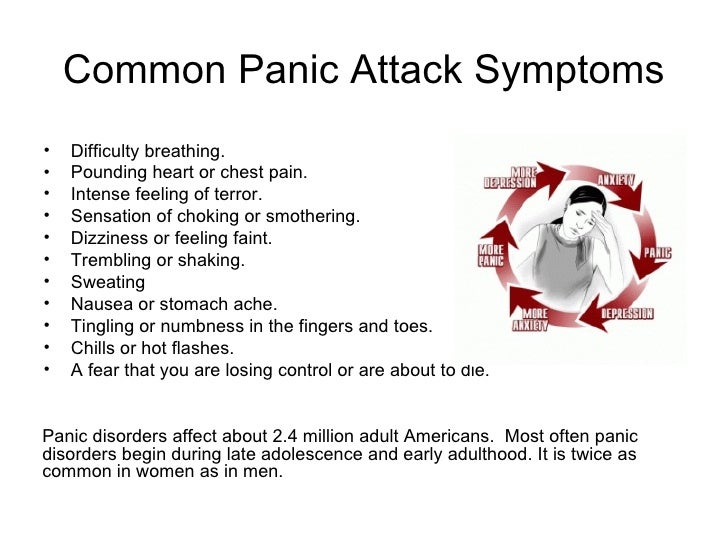 Even if there’s no real danger or nothing that would normally cause fear, people may still experience panic attacks severe enough to make them believe that they’re dying. While coping with these attacks is rough, recovering after a panic attack can be even more difficult. Keep reading to learn more about what a panic attack hangover is and dealing with the after-effects of panic attacks.
Even if there’s no real danger or nothing that would normally cause fear, people may still experience panic attacks severe enough to make them believe that they’re dying. While coping with these attacks is rough, recovering after a panic attack can be even more difficult. Keep reading to learn more about what a panic attack hangover is and dealing with the after-effects of panic attacks.
What Happens to Your Body During a Panic Attack?
When you experience a panic attack, your body’s fight or flight response is triggered, causing intense physical symptoms. Normally when you encounter a threat, your nervous system activates. The hormone adrenaline shoots into your bloodstream, putting your body on high alert. Your heartbeat quickens, supplying your muscles with more blood.
Then, your breathing becomes faster and more shallow, allowing you to take in more oxygen. Your blood sugar spikes and your senses get sharper, so you remain alert. All of these changes can happen from one moment to the next, all with the purpose of equipping you to protect yourself from the said threat.
Some other symptoms of a panic attack include:
- Feeling like you’re losing control
- Racing heart
- Excessive sweating
- Trembling or shaking
- Shortness of breath
- Rapid breathing
- Chest pain
- Nausea and/or vomiting
- Dizziness
- Hot flashes or chills
- Feeling like you’re choking
- Intense fear that you’re dying
- Numb or tingling sensations in your hands, arms, legs, or feet
What’s the Longest a Panic Attack Can Last?
If these symptoms happen so quickly, then how long do panic attacks last? Although it varies from person to person, panic attacks usually last around 20 to 30 minutes, with symptoms peaking after about 10 minutes. Usually, after 20 to 30 minutes, the majority of symptoms subside.
It’s important to point out that panic attacks are common indicators of an anxiety disorder.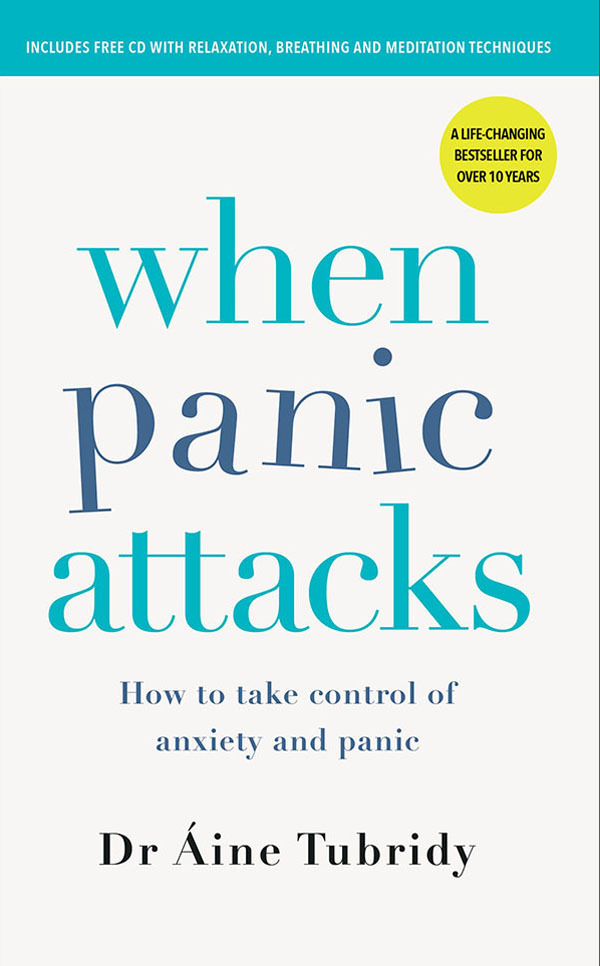 Anxiety is different from panic attacks in that it’s an actual condition characterized by intense, excessive, and persistent feelings of worry and fear about everyday situations. If you suspect that you may have anxiety or know someone who does, our mental treatment center in Florida offers anxiety treatment that can help you regain control of your health and life.
Anxiety is different from panic attacks in that it’s an actual condition characterized by intense, excessive, and persistent feelings of worry and fear about everyday situations. If you suspect that you may have anxiety or know someone who does, our mental treatment center in Florida offers anxiety treatment that can help you regain control of your health and life.
Post-Panic Attack: Dealing With the After Effects
Post-Panic Attack: Dealing With the After Effects
Also called an adrenaline hangover, a panic attack hangover refers to the symptoms you experience after your adrenaline levels go back down. During panic attacks, your adrenaline level spikes, increasing alertness and energy while sharpening your reflexes, so your body is prepared to either fight or run. However, once the perceived threat is gone and your symptoms have dissipated, you may be left feeling tired and even sore.
Post-Panic Attack Symptoms
Feeling tired the day after a panic attack is completely normal. For some people, it takes days to recover from an anxiety attack. If you’re dealing with a panic attack hangover, some symptoms may even linger.
For some people, it takes days to recover from an anxiety attack. If you’re dealing with a panic attack hangover, some symptoms may even linger.
Common post-panic attack effects include:
- Lethargy or fatigue
- Sleepiness
- Body aches and pains
- Muscle soreness
- Soreness in the jaw (especially if you tend to clench your jaw)
- Racing heart
- Trembling or shaking
- Sweating
- Chills
- Chest pain or discomfort
- Dizziness
- Nausea or stomach pain
While the physical symptoms of an anxiety attack tend to subside after about 20 minutes, others may continue to linger for a while. The person may continue to feel fearful, or their chest or stomach may hurt. They may continue to hyperventilate or have trouble catching their breath. They may even experience body pain after a panic attack due to physical tension.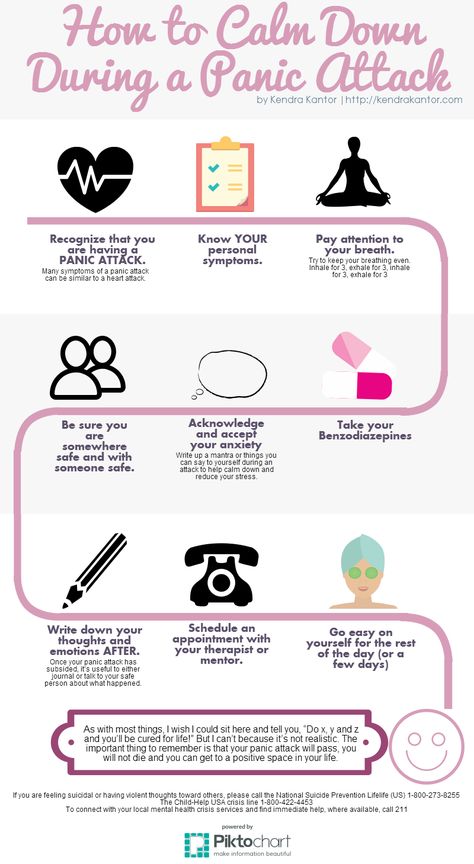
Tips for Dealing With the After-Effects of a Panic Attack
Although recovering from an anxiety attack can take time, it is possible. Below are some simple ways to deal with the after-effects of a panic attack that may help you the next time one occurs.
- Change your physical position: If your body is responding to something physically, then you have to comfort it physically. This means changing your body position. For example, if you’re standing or pacing around, then sit somewhere so you can relax and counter that reaction. If you’re lying down and you continue to feel panicky, sit or stand up.
- Change your surroundings: Have you just experienced a panic attack in your bedroom? Go outside for a walk. Just experienced a panic attack around a bunch of people? Go somewhere where you can be alone so you can calm down.
- Eat something: While your go-to panic-attack cure shouldn’t always be food, sometimes having a small snack or treat can set your mind at ease.
 For example, if you’re craving some sugar, try eating a sweet yet healthy snack, like fruit or trail mix. Anxiety attacks are also draining experiences, so it’s important not to neglect basics like eating.
For example, if you’re craving some sugar, try eating a sweet yet healthy snack, like fruit or trail mix. Anxiety attacks are also draining experiences, so it’s important not to neglect basics like eating. - Sleep: Panic attacks are tough on the mind and body, and sometimes you just feel downright tired after having one. If you’re somewhere you can nap, go for it. However, try to cap it at 30 minutes, so you’re able to get a good night’s sleep later.
- Exercise: Remember that certain symptoms can linger after an anxiety attack, such as restlessness. Sometimes you need to help your body readjust to the drop in adrenaline by moving or exercising. This is also a great way to release endorphins, reduce stress, and boost your mood.
- Call a loved one: Sometimes our minds are so full and jumbled that we need to let it out, and what better way to do that than venting to a loved one? If you feel comfortable doing so, call a trusted friend or family member to talk about what you’ve just experienced.
 They can help you process those feelings and even help you identify what triggered the attack so you can avoid it in the future.
They can help you process those feelings and even help you identify what triggered the attack so you can avoid it in the future.
Anxiety is no fun, and over time, the effects of anxiety on the body can take a toll. If you or someone you know struggles with anxiety, don’t wait to get help. You don’t have to live with this disorder or deal with it alone.
Call our inpatient mental health rehab today at 888-280-4763 to learn more about our treatment methods.
Panic attacks
Panic attacks (episodic paroxysmal anxiety) - attacks of severe anxiety (panic) or fear (most often - fear of death, less often - fear of losing consciousness, loss of control, helplessness or fear of "going crazy"), accompanied by a rapid heartbeat and a feeling of " suffocation, shortness of breath. Sometimes there are additional symptoms such as increased blood pressure, a feeling of "internal trembling", trembling in the limbs, a feeling of "hot flashes" of heat or cold, numbness of the extremities, increased sweating, a feeling of "unstability" or dizziness, nausea, derealization or depersonalization, etc.
Panic attacks last on average 5 to 30 minutes. However, sometimes they can last several hours, and in rare cases - up to several days.
I must say that even 30 years ago this disease was extremely rare. But now the incidence of panic attacks is increasing exponentially every year! Especially in big cities. Alas, panic attacks are considered a “disease of megacities”. And they suffer, most often, people with increased anxiety and the so-called perfectionists.
Earlier, in Soviet medicine, this disorder was called " sympathoadrenal crises ". This name, more than the modern one, reflected the essence of the processes occurring in the body during panic attacks. Nevertheless, I will not bother readers with a description of biochemical processes and a list of the hormones and neurotransmitters involved in these reactions. Knowing this practically does not affect the fact of the occurrence of seizures. Because biochemical processes are just an "intermediate link" in the chain of cause and effect relationships occurrence of panic attacks .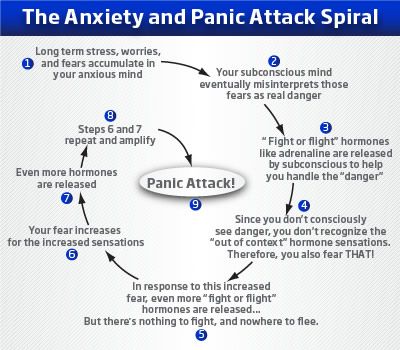 What then is the "primary link", so to speak, the root cause?
What then is the "primary link", so to speak, the root cause?
Panic attacks occur suddenly, and, as it often seems, without any external causes or under the influence of minor unpleasant factors (an ordinary quarrel in the family, another trouble at work, overcrowding and stuffiness in a subway or train car, a long “traffic jam” on the road, etc.). etc.). In fact, panic attacks always occur against the background of an already long-term depression (most common), or after repeated or severe stress (or rather, distress). Don't be surprised by this, because it is quite difficult for an ordinary person, not a specialist, to diagnose depression. Especially, at himself. Moreover, its mild or atypical forms. Especially if it lasts a year or several years (and for some people - since childhood!). In this case, they may not even remember how they felt without depression. In this variant, the body functions “with the last of its strength”, works “at the limit of its capabilities”; and some minor unpleasant event can be the “last straw” for him! Figuratively speaking, a panic attack is “hysteria of the body”, its “desperate cry: “I can’t do this anymore !!!”
Well, in the question "Who is to blame?" figured it out.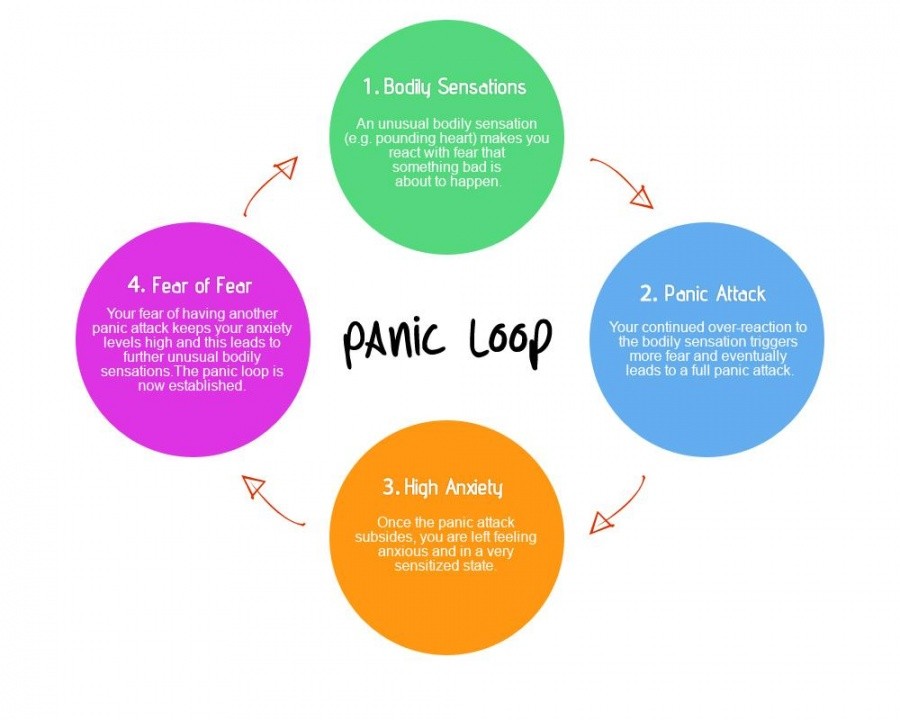 Now let's move on to the equally important question "What to do?" The fact that no one in the world has yet died from panic attacks is little consolation for those suffering from this excruciating disorder. To say that panic attacks are an unpleasant state is an understatement! These are unbearable sensations, and in the most severe cases, a real feeling of approaching death, which a person is sometimes forced to experience daily! And most importantly, he does not understand what is happening to him, and how to stop it!
Now let's move on to the equally important question "What to do?" The fact that no one in the world has yet died from panic attacks is little consolation for those suffering from this excruciating disorder. To say that panic attacks are an unpleasant state is an understatement! These are unbearable sensations, and in the most severe cases, a real feeling of approaching death, which a person is sometimes forced to experience daily! And most importantly, he does not understand what is happening to him, and how to stop it!
Panic attacks sharply reduce the quality of a person's life, subordinating her entire expectation of the next attack. And, accordingly, they affect social activity, sometimes making a person completely incapacitated.
When panic attacks first appeared in the clinical practice of physicians, they were treated empirically with various sedatives and tranquilizers. However, after their cancellation, the seizures reappeared, and with prolonged use of these drugs, tolerance (insensitivity) inevitably and rather quickly set in.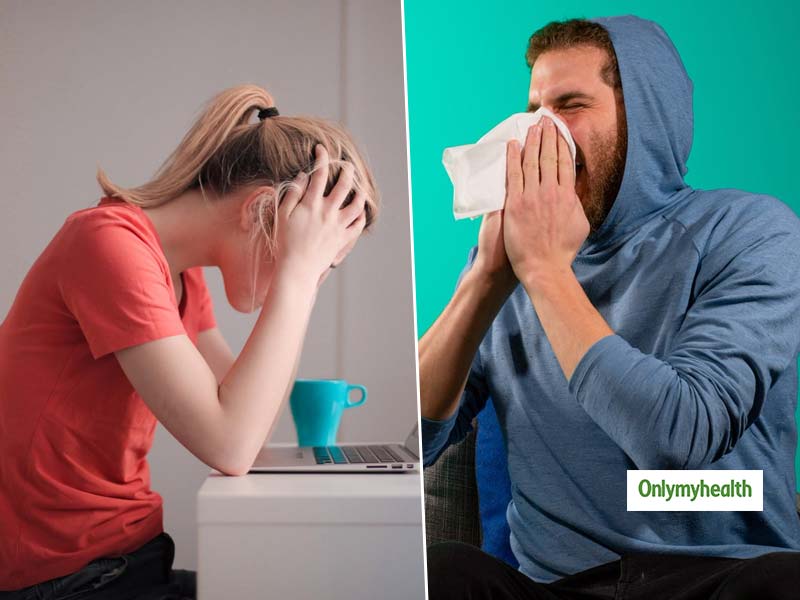 Therefore, in order to stop panic attacks, it was necessary to constantly increase doses or resort to more “strong” tranquilizers. But everywhere there is a limit: the number of tranquilizers is not unlimited, especially their doses. It was necessary to remember another very important aspect: long-term use of these drugs causes dependence on them. And after the abolition of tranquilizers, the symptoms of mental and physical withdrawal joined the renewed panic attacks, which further worsened the patient's condition.
Therefore, in order to stop panic attacks, it was necessary to constantly increase doses or resort to more “strong” tranquilizers. But everywhere there is a limit: the number of tranquilizers is not unlimited, especially their doses. It was necessary to remember another very important aspect: long-term use of these drugs causes dependence on them. And after the abolition of tranquilizers, the symptoms of mental and physical withdrawal joined the renewed panic attacks, which further worsened the patient's condition.
Then the tactics of treatment were somewhat changed: antidepressants were added to "light" or small doses of "medium-powered" tranquilizers. And it was a "breakthrough" in the treatment of panic attacks! Because antidepressants do not just "relieve" the symptoms, but they affect the foundation on which these attacks are based - depression itself! Of course, in modern medicine there are a huge number of antidepressants, and the effectiveness of their effect on panic attacks is very different. But an experienced psychotherapist or psychiatrist can quite accurately select a drug that is suitable for a particular person. It is important to note that antidepressants have a cumulative effect, so their therapeutic effect does not appear immediately after the appointment, but after a certain time (on average, after a month). And, here, the full duration of treatment with antidepressants is, at best, from 6 to 12 months, and sometimes up to several years.
But an experienced psychotherapist or psychiatrist can quite accurately select a drug that is suitable for a particular person. It is important to note that antidepressants have a cumulative effect, so their therapeutic effect does not appear immediately after the appointment, but after a certain time (on average, after a month). And, here, the full duration of treatment with antidepressants is, at best, from 6 to 12 months, and sometimes up to several years.
At the same time, there are cases of especially severe courses of panic attacks, when the appointment of even "powerful" antidepressants for a sufficiently long time does not bring the desired effect, i.e. panic attacks do not stop completely, but only become less pronounced or occur less frequently. In this version, a person, anyway, does not feel healthy and constantly lives in fear of the next attack. In this case, doctors are forced to launch "heavy artillery" - to add NEUROLEPTICS to the treatment, which patients have to take for quite a long time. Antipsychotics have a large number of unpleasant side effects, which is why many patients refuse them.
Antipsychotics have a large number of unpleasant side effects, which is why many patients refuse them.
However, there is another way to treat panic attacks. He is not a drug! That is, there is a REAL METHOD OF COMPLETE CURING FROM PANIC ATTACKS, ABSOLUTELY WITHOUT RESORTING TO ANY KIND OF MEDICINES !!! This method is PSYCHOTHERAPEUTIC.
In the modern world there are a lot of different types and directions of psychotherapy. But, it must be said bluntly that with panic attacks, most of them are not effective without medical support.
However, the method that I use in my psychotherapeutic work is unique. It often allows you to completely eliminate panic attacks in 1 session! One or two more sessions are required to eliminate the FEAR of the appearance of seizures (or their expectation).
But in order to begin the direct elimination of panic attacks, a certain “intellectual” preparation of the patient is necessary. It requires from 8 to 12 sessions (depending on the severity of the disease and the personal characteristics of the patient) with a frequency of 1-2 sessions per week.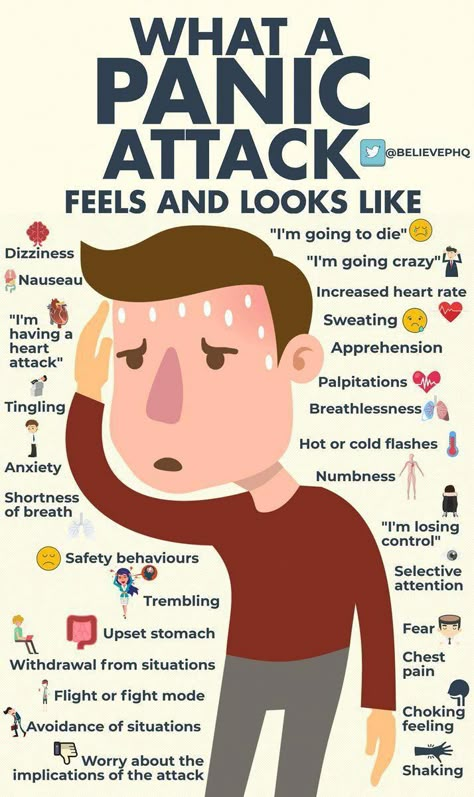
After eliminating panic attacks and the fear of their occurrence, it is extremely important to “develop” the underlying causes that led to their appearance. This will be a kind of "insurance" against the occurrence of panic attacks in the future. This requires 3-4 months on average (with the frequency of classes 1 time per week). But, having worked through these “deep roots”, a person not only completely gets rid of panic attacks, but also depression, solves many personal problems and begins to live a full life!
How to protect yourself from a panic attack
Sudden dizziness, weakness, fear of losing control, fear of going crazy or death, palpitations, sweating, body tremors, feeling short of breath, chills or sudden hot flashes, nausea, abdominal cramps , chest pain, headache, a feeling of numbness or tingling in the body, a feeling of unreality or detachment. These symptoms can be a sign of many conditions, but very often they are caused by a sudden attack of anxiety, or in other words, a panic attack.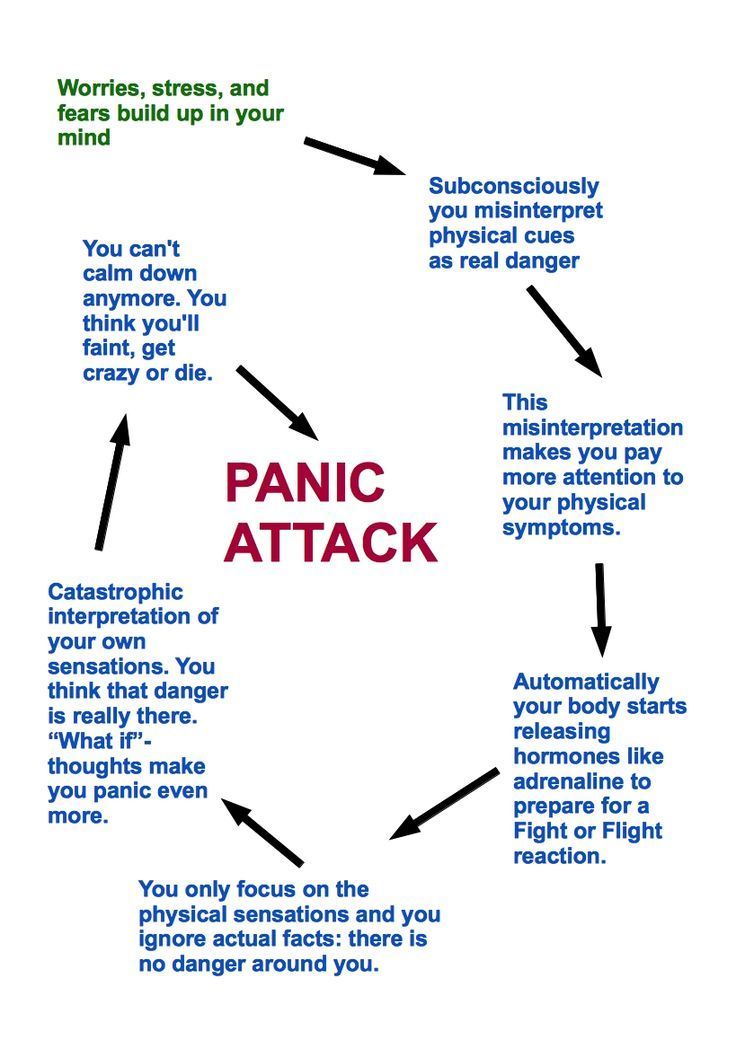
What is a panic attack (PA)?
A panic attack is a sudden episode of intense fear that causes severe physical reactions when there is no real danger or apparent cause. Panic attacks can indeed be very frightening. When they happen, a person may think that she is losing control of reality, that she is having a heart attack, or even that she is about to die.
Many people have only one or two panic attacks in their lifetime, which may disappear when the stressful situation ends. But if you've had recurring sudden panic attacks and spent long periods of your life in constant fear of another attack, you may have a condition called an anxiety disorder.
Panic attacks usually start suddenly, without warning. They can catch you at any time - when you are driving, in the mall, when you are fast asleep or in the middle of a business meeting. Anxiety attacks have many variations, but the symptoms usually peak within a few minutes. Often a person feels exhausted after the panic attack subsides.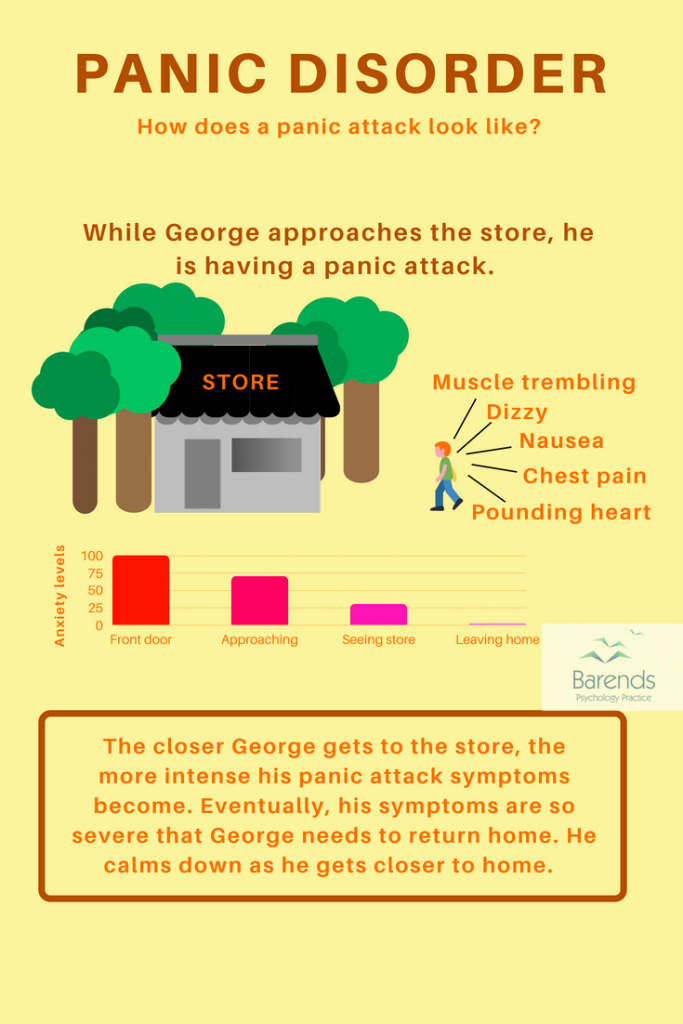 One of the worst things about panic attacks is the intense fear of the next possible attack. Sometimes people are so afraid of anxiety attacks that they begin to avoid situations in which a panic attack could theoretically occur.
One of the worst things about panic attacks is the intense fear of the next possible attack. Sometimes people are so afraid of anxiety attacks that they begin to avoid situations in which a panic attack could theoretically occur.
Symptoms of panic disorder often begin in late adolescence or early adulthood and are more common in women than men.
Factors that may increase the risk of developing a panic attack or a panic disorder include:
- Family history of a panic attack or anxiety disorder;
- Significant stress, such as the death or serious illness of a loved one;
- Traumatic events such as sexual assault or serious accident;
- Profound changes in your life, such as divorce or the birth of a child;
- Smoking or excessive consumption of caffeine;
- History of child physical or sexual abuse.
Although panic attacks themselves are not life threatening, they can be frightening and significantly affect your quality of life.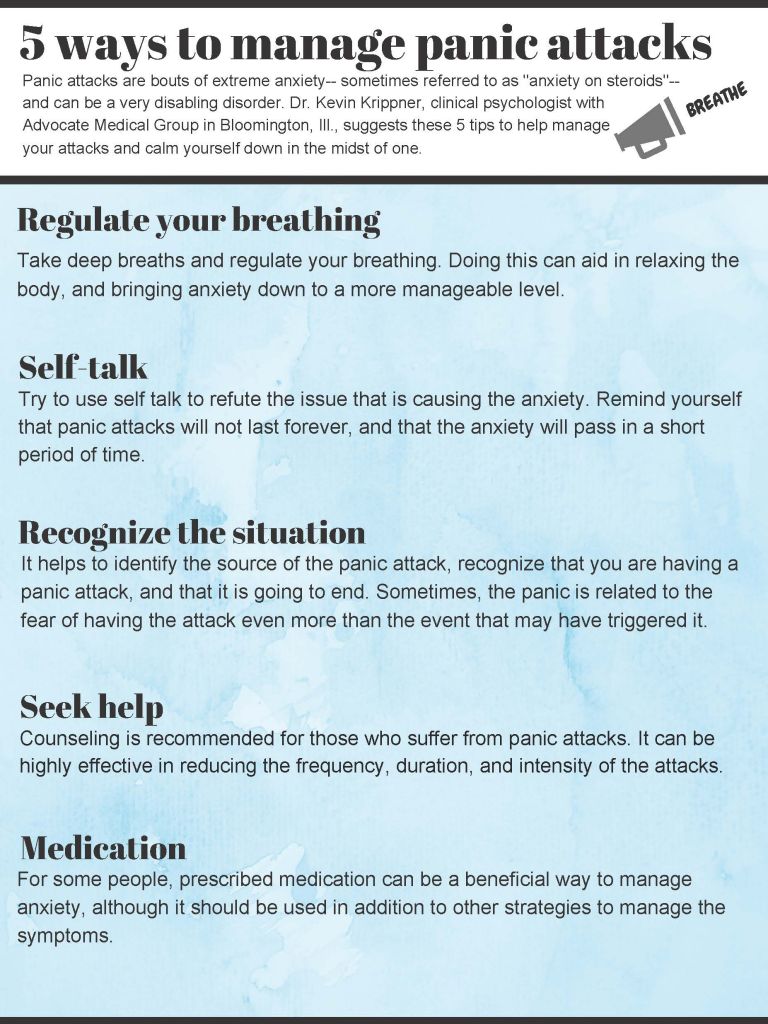 But, fortunately, this condition is effectively treated. That is why it is so important to seek help from a specialist in time: a psychiatrist, a neuropsychiatrist, or a psychotherapist. The most effective and scientifically proven treatment for panic attacks is psychotherapy. It is during therapy that it is possible to find and solve the cause of panic attacks, and not just “heal” the symptom. This helps prevent future anxiety attacks. In some cases, pharmacotherapy may be required for greater effectiveness. Antidepressants from the group of selective serotonin reuptake inhibitors, benzodiazepines and some atypical antipsychotics are recognized as auxiliary drugs for the treatment of PA. MEDICOVER Mental Health specialists have many years of solid experience in dealing with panic attacks. Our neuropsychiatrists and psychotherapists will be able to help you effectively get rid of suffering in an atmosphere of confidentiality, trust and comfort.
But, fortunately, this condition is effectively treated. That is why it is so important to seek help from a specialist in time: a psychiatrist, a neuropsychiatrist, or a psychotherapist. The most effective and scientifically proven treatment for panic attacks is psychotherapy. It is during therapy that it is possible to find and solve the cause of panic attacks, and not just “heal” the symptom. This helps prevent future anxiety attacks. In some cases, pharmacotherapy may be required for greater effectiveness. Antidepressants from the group of selective serotonin reuptake inhibitors, benzodiazepines and some atypical antipsychotics are recognized as auxiliary drugs for the treatment of PA. MEDICOVER Mental Health specialists have many years of solid experience in dealing with panic attacks. Our neuropsychiatrists and psychotherapists will be able to help you effectively get rid of suffering in an atmosphere of confidentiality, trust and comfort.
What can happen if PA is not treated?
If left untreated, panic attacks and anxiety can affect almost any area of your life. You may already suffer so much from PA attacks, living in a constant state of fear that destroys the quality of your life.
You may already suffer so much from PA attacks, living in a constant state of fear that destroys the quality of your life.
Complications that may lead to panic attacks or related conditions include:
- Development of specific phobias such as fear of driving or leaving the house;
- Frequent visits to general practitioners for health problems;
- Avoidance of social contact and public events;
- Relationship problems at work or school;
- Depression, anxiety and other mental disorders;
- Increased risk of suicide or suicidal thoughts;
- Alcohol or other substance abuse;
- Financial problems.
In some people, an anxiety disorder may include agoraphobia - avoidance of places or situations that cause anxiety because there is a fear of not being able to run away or get help if you have an PA.
Summing up, it should be remembered that panic attacks are not a sentence, or a terrible psychiatric diagnosis.


